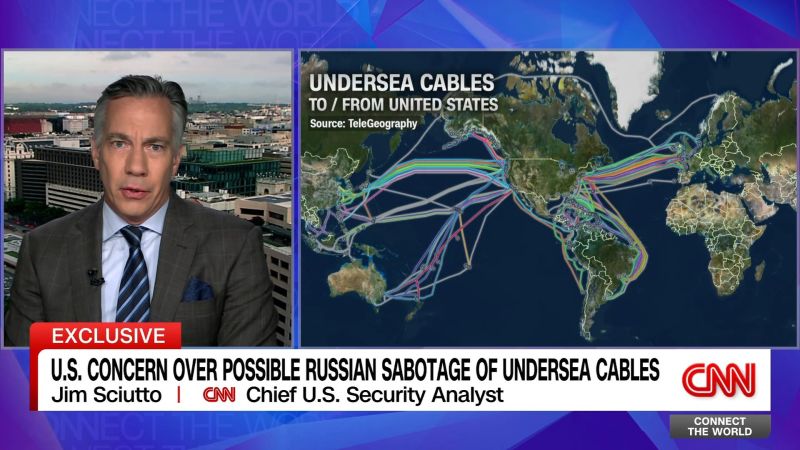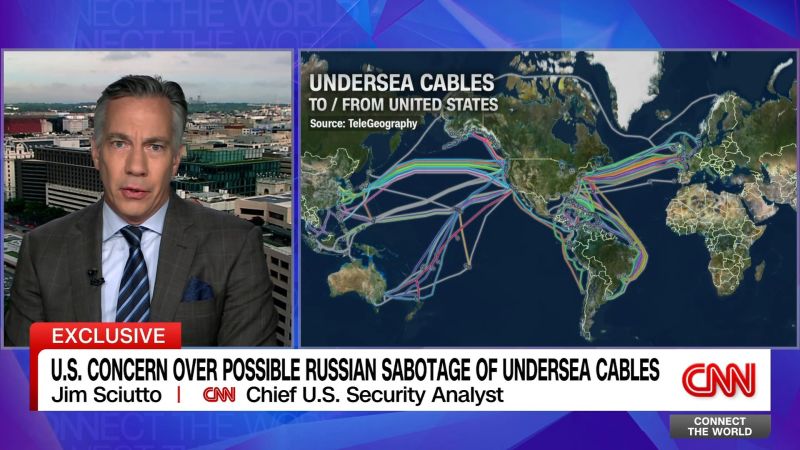
Two undersea internet cables in the Baltic Sea have been suddenly disrupted, according to local telecommunications companies, amid fresh warnings of possible Russian interference with global undersea infrastructure.
Another cable linking Finland and Germany was also disrupted, according to Cinia, the state-controlled Finnish company that runs the link. The C-Lion cable – the only direct connection of its kind between Finland and Central Europe – spans nearly 1,200 kilometers (730 miles), alongside other key pieces of infrastructure, including gas pipelines and power cables.
It is unclear what exactly caused the fault in the C-Lion – Cinia said in a statement that it is still investigating the issue. A physical inspection has not yet been conducted, Reuters reported citing the company’s chief executive Ari-Jussi Knaapila, who told a press conference on Monday that the sudden outage implied that the cable was cut by an outside force.
The foreign ministers of Finland and Germany said in a joint statement on Monday evening that they were “deeply concerned” about the severed C-Lion cable, and raised the possibility of “hybrid warfare.”
“The fact that such an incident immediately raises suspicions of intentional damage speaks volumes about the volatility of our times. A thorough investigation is underway,” the statement said. “Our European security is not only under threat from Russia‘s war of aggression against Ukraine, but also from hybrid warfare by malicious actors.”
Fears of undersea sabotage
The warning came after a joint investigation by the public broadcasters of Sweden, Denmark, Norway and Finland, which reported in April 2023 that Russia had a fleet of suspected spy ships operating in Nordic waters as part of a program of potential sabotage of underwater cables and wind farms in the region.
The extent of the disruption caused by Cinia’s C-Lion fault revealed Monday is unclear. The most important data flows are usually routed through several different cables, to avoid overreliance on a single link.
A repair vessel is ready to go to the site of the fault, Cinia said in a statement Monday evening. It said it did not know how long repairs would take, but added it typically takes between five and 15 days for submarine cables.
Lithuanian state media was first to report the cut between Lithuania and Sweden, and quoted Telia Lithuania’s chief technology officer Andrius Šemeškevičius saying that the cable handled roughly a third of Lithuania’s internet capacity. Capacity has been restored since the disruption.
The cable is operated by Arelion, a Swedish telecommunications company. Martin Sjögren, a spokesperson for the company, confirmed the damage to the BCS East-West link and said that the company is in contact with Sweden’s military and civil authorities about the incident. The cable had connected Gotland, Sweden and Šventoji, Lithuania, he said.
The issue was detected on Sunday during routine 24/7 monitoring of the company’s network, and the cable is expected to be repaired over the next few weeks, depending on weather conditions, he added.
This is a developing story and will be updated.

